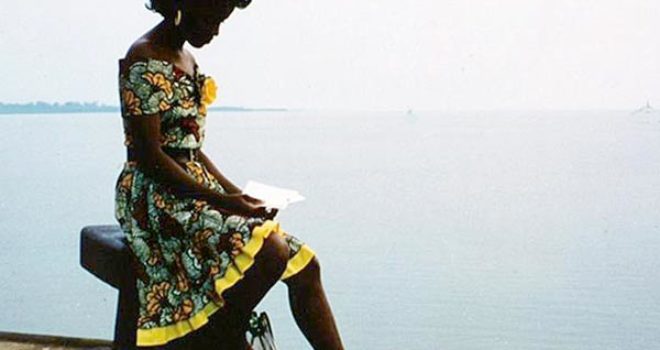While Portuguese-speaking African films are not totally unknown in France (two films by Flora Gomes from Guinea-Bissau were released here and a third one is likely to come out soon), the overwhelming majority of these films remains to be discovered.
For historical and political reasons, French-speaking African film-makers have had more luck than their Portuguese-speaking colleagues in making and showing their films.
The former Portuguese colonies share a common film history closely linked to the late and difficult decolonization: 1974 for Guinea-Bissau, 1975 for Angola, Cape Verde Islands and Mozambique. With the exception of a few Angolan propaganda documentaries made by the Independence fighters in the 1960s, Portuguese-speaking African cinema is less than thirty-years old.
Developing in different directions and with various degrees, it has depended on the new States’ initiatives to try and create film industries out of nothing.
Angola has the oldest film industry. The first documentaries were made before Independence and produced by the MPLA, one of the independence movements. Used as a political tool, Angolan films are often, but not exclusively, documentaries. Ruined by forty years of war, Angola has not been able to develop a film industry, producing only one feature film and a few documentaries. Despite extremely harsh conditions, two feature films are currently being made.
The most prolific country is Mozambique. Its politically motivated, mostly documentary cinema has more than 400 films, among which are a few fiction films. Cinema in Mozambique is currently going through a revival.
The most recent film industry is Cape Verde’s where the first feature film was made in 1994 (llheu de contenda, Leão Lopes). Thanks to a stable political situation, Cape Verde has been able to develop its own film industry with Government support. A fascination for the tropics and the rich local music, introduced in the Western countries by Cesaria Evora’s mornas, have brought about the making of many documentaries and feature films, a remarkable fact for such a small country.
The most widely recognized films are from Guinea-Bissau. In a country where practically no film was made until the 1990s, two directors emerged whose films have been seen around the world: Sana Na N’hada and Flora Gomes in particular. The local film industry greatly suffered from the 1998 coup. Today, it is trying to set itself up again, despite difficulties arousing from the regime’s instability.
With this programme, our aim is to retrieve these films from oblivion and show them to the widest possible audience.
Alain Jalladeau



